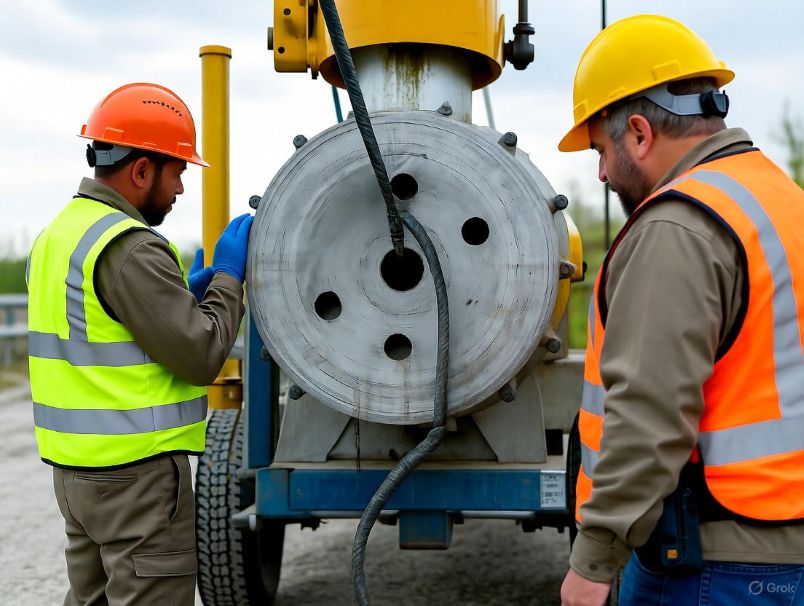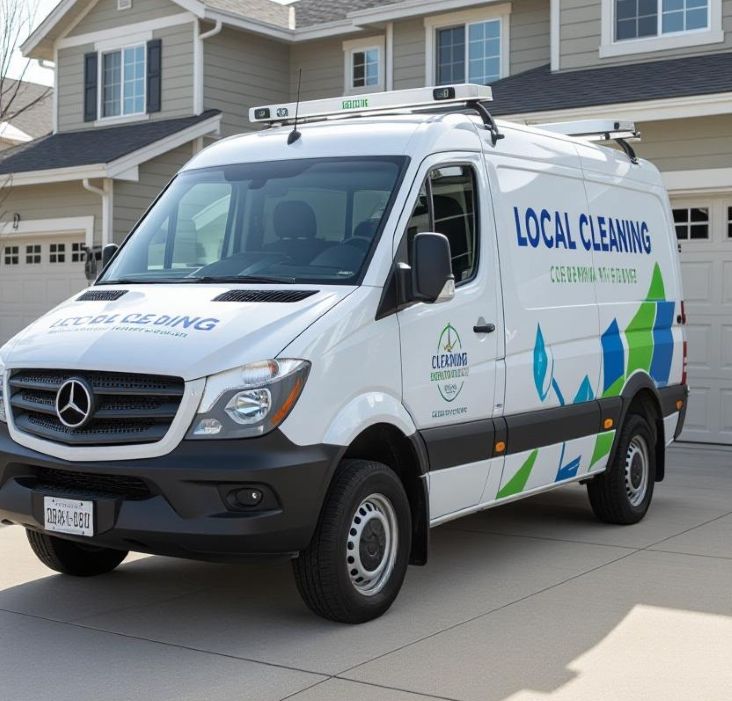Business
Consumers are increasingly seeking products that enhance their health, well-being, and quality of life. With the rise of new innovations, the health and wellness market has grown substantially over the past decade. What was once a niche market focused on fitness supplements has expanded to include a wide range of products. From wearables that monitor health to supplements aimed at improving mental and physical well-being, the sector is booming. As consumer needs evolve, new product categories are emerging to meet these demands, such as innovative health products like thca cartridges.
New Trends in Wellness Products
 The health and wellness industry is constantly shifting, driven by consumer preferences for natural, organic, and sustainable options. These changes are not only evident in what people are choosing to buy but also in how they are making purchasing decisions. With wellness becoming more holistic and inclusive, new categories are sprouting up. There’s a growing focus on mental well-being, sleep improvement, stress management, and immunity-boosting products. Consumers are no longer just interested in physical health; they want overall well-being, which includes mental, emotional, and environmental factors.
The health and wellness industry is constantly shifting, driven by consumer preferences for natural, organic, and sustainable options. These changes are not only evident in what people are choosing to buy but also in how they are making purchasing decisions. With wellness becoming more holistic and inclusive, new categories are sprouting up. There’s a growing focus on mental well-being, sleep improvement, stress management, and immunity-boosting products. Consumers are no longer just interested in physical health; they want overall well-being, which includes mental, emotional, and environmental factors.
The Shift Toward Natural and Sustainable Products
One of the most significant shifts in the health and wellness market is the increased demand for natural, organic, and sustainable products. From skincare to food supplements, there is a growing preference for products that are free from artificial additives, chemicals, and non-sustainable sourcing. Consumers are now more aware of the environmental impact of their purchases. Brands that emphasize eco-friendly packaging, ethical sourcing, and transparency in ingredient lists are quickly gaining popularity.
Consumers are looking for ways to lead healthier lifestyles, which includes choosing products that have a positive impact on both their personal health and the planet. Companies that align themselves with sustainability and natural ingredients are becoming more trusted in the market. This trend is not only a reflection of changing consumer preferences but also a response to a broader societal push for environmental responsibility.
Technology and Wearables: The Intersection of Health and Innovation
Technology is another key factor shaping the future of the health and wellness industry. Wearables, such as fitness trackers and health monitoring devices, are making it easier for consumers to track their progress and optimize their routines. These gadgets provide real-time data on physical activity, sleep patterns, and even heart health, empowering users to make more informed decisions about their health.
As technology continues to advance, new innovations are expected to hit the market. From smart scales that measure body composition to smart water bottles that remind you to stay hydrated, the integration of technology in health and wellness is revolutionizing the way we approach personal well-being. These devices are becoming increasingly sophisticated, providing users with personalized insights and recommendations based on data-driven analysis.
The Rise of Mental Wellness and Stress Management Products
While physical health has always been at the forefront of the wellness industry, mental well-being is quickly gaining recognition as just as important. Products aimed at reducing stress, improving mood, and supporting mental health are becoming increasingly popular. This includes everything from herbal supplements to meditation apps, breathing devices, and even therapy-related products.
The demand for mental health products reflects a growing recognition of the importance of emotional well-being. As people become more open to addressing mental health, products that promote mindfulness, relaxation, and mental clarity are becoming mainstream. The wellness community is embracing practices that help individuals manage stress, improve sleep, and enhance cognitive function, paving the way for new types of wellness products that focus on the mind as well as the body.
Innovative Supplements and Alternative Products
Another area of growth in the health and wellness sector is the rise of innovative supplements and alternative health products. People are becoming more experimental with their health routines, seeking out products that offer new benefits and address a variety of wellness concerns. Examples include adaptogenic herbs, probiotics, and nootropic supplements aimed at improving brain function.
Additionally, some of these new product categories cater to niche markets with specific needs. For example, THCA cartridges have emerged as a product catering to those looking for alternatives to traditional wellness supplements. These products, while still in their early stages, have gained attention for their potential health benefits and the growing consumer interest in holistic well-being.
The Role of E-Commerce in Wellness Product Growth
E-commerce has played a significant role in the growth of the health and wellness industry. With more consumers shopping online for products that promote wellness, it’s easier than ever to access a wide variety of health-related goods. The rise of online shopping has democratized access to wellness products, enabling consumers from all walks of life to find solutions that fit their needs.
Online platforms also provide a wealth of information, allowing consumers to research products before purchasing them. This access to reviews, product descriptions, and expert opinions helps build trust and transparency between brands and their customers. The growing popularity of e-commerce has made it simpler for new wellness companies to enter the market and for consumers to discover new products and trends that they might not have encountered in traditional brick-and-mortar stores.
The Impact of Social Media on Wellness Trends
Social media has also had a profound impact on the growth of wellness trends. Platforms like Instagram, TikTok, and YouTube have become crucial in driving consumer awareness and brand discovery. Influencers and wellness advocates use these platforms to promote new products, share their personal health journeys, and educate their followers on the latest trends. These online communities foster a sense of connection and support, helping consumers discover products they can trust.
As consumers become more involved in online health communities, their purchasing decisions are increasingly influenced by recommendations and reviews from their peers. Social media plays a pivotal role in shaping the success of health and wellness brands, as it helps them reach new audiences and build loyal customer bases.
READ ALSO: Why Social Media Growth is a Game Changer for Small Businesses
What’s Next for the Health and Wellness Industry?
Looking ahead, the future of the health and wellness industry will likely see even more product innovations aimed at meeting the diverse needs of consumers. With an increased focus on holistic well-being, there will be a rise in multifunctional products that cater to both physical and mental health. Technology will continue to play a significant role, as more devices and apps are developed to assist consumers in optimizing their health routines.
Consumers are also likely to continue prioritizing sustainability and natural ingredients in their wellness products. As the demand for transparency grows, brands will need to stay ahead of the curve by offering eco-friendly, ethically sourced, and scientifically-backed products. Whether it’s through innovative supplements, wearable technology, or mental wellness products, the health and wellness market is evolving rapidly, and the next wave of trends will undoubtedly offer exciting opportunities for both consumers and businesses alike.





 It is costly and time consuming to employ fulltime employees. On-demand freelancers and remote talent enables enterprises to expand or contract resources as per the needs.
It is costly and time consuming to employ fulltime employees. On-demand freelancers and remote talent enables enterprises to expand or contract resources as per the needs. Flexible schedules help us to work when most effective, whether that means early mornings or late evenings. Greater work-life balance and more job satisfaction follow from this autonomy.
Flexible schedules help us to work when most effective, whether that means early mornings or late evenings. Greater work-life balance and more job satisfaction follow from this autonomy. Social media is now one of the most powerful tools for small businesses. With billions of people active on platforms like Instagram, Facebook, and Twitter, businesses can reach audiences that were once only accessible through costly advertising channels. Unlike traditional marketing, social media offers a way to connect with potential customers on a personal level—often at a fraction of the cost.
Social media is now one of the most powerful tools for small businesses. With billions of people active on platforms like Instagram, Facebook, and Twitter, businesses can reach audiences that were once only accessible through costly advertising channels. Unlike traditional marketing, social media offers a way to connect with potential customers on a personal level—often at a fraction of the cost.
 Rules usually require upfront spending on greener tech or trash reduction. Remember this is a long-term approach. Reduce your environmental footprint to save money on electricity and rubbish.
Rules usually require upfront spending on greener tech or trash reduction. Remember this is a long-term approach. Reduce your environmental footprint to save money on electricity and rubbish. 1. Understand Your Motivations and the Amount
1. Understand Your Motivations and the Amount  1. Figure out where you want to go
1. Figure out where you want to go

































 Gangnam’s luxury nightlife thrives on exclusivity, elegance, and wealth. Among its many attractions, Jjim-o (쩜오) clubs have become one of the most fascinating elements of Seoul’s high-end entertainment scene. The term “쩜오,” pronounced “Jjim-o,” refers to private, members-only venues where intimacy meets luxury. These clubs operate on a model built around personalized service, curated experiences, and a clientele willing to pay top prices for complete discretion.
Gangnam’s luxury nightlife thrives on exclusivity, elegance, and wealth. Among its many attractions, Jjim-o (쩜오) clubs have become one of the most fascinating elements of Seoul’s high-end entertainment scene. The term “쩜오,” pronounced “Jjim-o,” refers to private, members-only venues where intimacy meets luxury. These clubs operate on a model built around personalized service, curated experiences, and a clientele willing to pay top prices for complete discretion.



 Belgium’s changing seasons make heating and cooling a major priority for homes and businesses. This ongoing demand has created a highly competitive HVAC market. Standing out isn’t easy. Yet, companies like SaniChauffe have found a winning formula. They mix local knowledge with modern tech and unmatched customer care. The result? A business that doesn’t just survive but thrives year after year.
Belgium’s changing seasons make heating and cooling a major priority for homes and businesses. This ongoing demand has created a highly competitive HVAC market. Standing out isn’t easy. Yet, companies like SaniChauffe have found a winning formula. They mix local knowledge with modern tech and unmatched customer care. The result? A business that doesn’t just survive but thrives year after year. Strong communication is one of the most important skills in any workplace. It helps teams run smoothly, keeps clients happy, and ensures everyone is on the same page. Yet, many employee training programs skip over the foundation that makes communication truly effective—literacy education.
Strong communication is one of the most important skills in any workplace. It helps teams run smoothly, keeps clients happy, and ensures everyone is on the same page. Yet, many employee training programs skip over the foundation that makes communication truly effective—literacy education. The health and wellness industry is constantly shifting, driven by consumer preferences for natural, organic, and sustainable options. These changes are not only evident in what people are choosing to buy but also in how they are making purchasing decisions. With wellness becoming more holistic and inclusive, new categories are sprouting up. There’s a growing focus on mental well-being, sleep improvement, stress management, and immunity-boosting products. Consumers are no longer just interested in physical health; they want overall well-being, which includes mental, emotional, and environmental factors.
The health and wellness industry is constantly shifting, driven by consumer preferences for natural, organic, and sustainable options. These changes are not only evident in what people are choosing to buy but also in how they are making purchasing decisions. With wellness becoming more holistic and inclusive, new categories are sprouting up. There’s a growing focus on mental well-being, sleep improvement, stress management, and immunity-boosting products. Consumers are no longer just interested in physical health; they want overall well-being, which includes mental, emotional, and environmental factors. Running a successful Porsche service business requires more than just fixing cars. It’s about building trust, offering excellent service, and staying ahead of industry trends. Whether you’re an independent shop owner or part of a franchise, understanding the business side of auto repair can set you apart and keep customers coming back.
Running a successful Porsche service business requires more than just fixing cars. It’s about building trust, offering excellent service, and staying ahead of industry trends. Whether you’re an independent shop owner or part of a franchise, understanding the business side of auto repair can set you apart and keep customers coming back.

 Streamlining project execution has become crucial for businesses seeking cost savings and faster results. The electrical design-build approach transforms industries by combining design and construction into a seamless process. This integration eliminates inefficiencies, accelerates timelines, and delivers significant financial benefits.
Streamlining project execution has become crucial for businesses seeking cost savings and faster results. The electrical design-build approach transforms industries by combining design and construction into a seamless process. This integration eliminates inefficiencies, accelerates timelines, and delivers significant financial benefits.